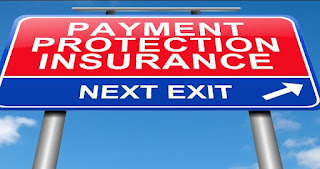Understanding PPI (Payment Protection Insurance) (8)
Payment protection insurance, popularly known as PPI is a type of insurance that protects borrowers and other consumers with debts.
Some of the common debts that are settled by this insurance include: mortgages and other loans.
When financial institutions give loans to their customers, the customers are supposed to repay the loans to completion; however, in some cases disaster strikes and the customers fall sick or lose their jobs and are unable to clear the debts or repay the loans.
In situations like this, PPI steps in and meets the payments on behalf of the consumers until the consumers get out of the predicament. PPI may also decide to repay the loans for a period of up to one year after which the consumer has to carry on with the payments.
Who issues PPI insurance policies?
Insurance companies are the ones who issue the policies to consumers who take loans. The consumers include the people with loan mortgages, car finance, credit card debt and other forms of debts. Usually, the lenders process the applications on behalf of the insurance companies.
For example, a bank can process the PPI insurance premium for a mortgage holder on behalf of an insurance company.
What are PPI claims?
These are claims that consumers and holders of PPI receive when insurance cover is mis-sold to them. In most cases consumers are mis-sold insurance using wrong information.
Other consumers are told that they have to purchase the policies after being told that they have to purchase the policies, other consumers are unaware that they have purchased the insurance cover. In cases where banks or insurance companies are found guilty of mis-selling the policies, they have to compensate all the consumers.
How to file a reclaim
If you feel that a PPI cover was wrongfully sold to you, you should file a reclaim. Filing a reclaim is easy because all you need to do is to fill in an application, attach all the necessary documents and submit your application to the government.
Upon sending your application, the government assesses your application and if it's in good order and all the documents are properly filed, it's sent to banks so that you can be paid back your money. According to a court ruling, banks are usually required to pay all the claims submitted from the government.
In case you have problems filing a claim for compensation, you should approach firms and agencies that have the right experience in helping individuals to file reclaims.


Post a Comment for "Understanding PPI (Payment Protection Insurance) (8)"